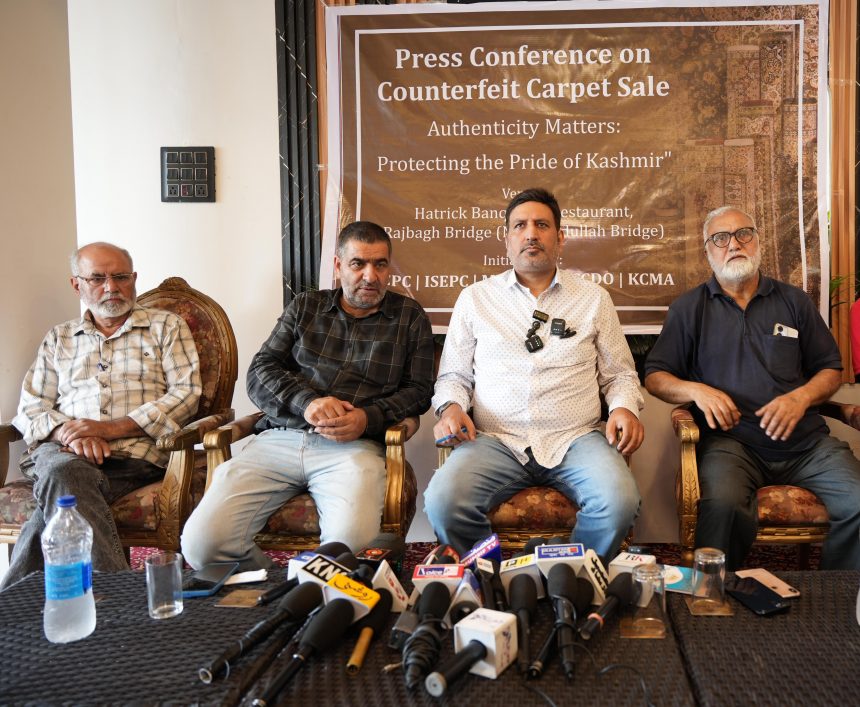Srinagar, Jul 22: Sheikh Ashiq, a notable business leader who serves on the boards of both the Carpet Export Promotion Council and The Indian Silk Export Promotion Council, on Tuesday called upon government and industry stakeholders to take immediate action to combat the surge of counterfeit and machine-made carpets falsely marketed as genuine Kashmiri handicrafts.Addressing a press conference here, Ashiq accused certain traders and retailers of blending machine-made carpets—including imports from countries like Iran and Turkey—with traditional Kashmiri handwoven carpets in local showrooms. “This practice not only erodes the unique identity and standing of Kashmiri products globally but also jeopardises the livelihoods of thousands of local artisans,” he said. “A single handmade carpet represents the year-long dedication of an artisan, while a machine-made carpet can be produced en masse within a day. This imbalance is driving skilled weavers towards joblessness and severely threatening a craft that is an integral part of our heritage.”Sheikh drew attention to the authorities’ lack of swift response, noting that government intervention often comes only after consumers have already been misled. “What we need is proactive enforcement; machine-made products must be promptly withdrawn from handicraft outlets, and there should be strict measures for identification and separation,” he said.Ashiq advocated for clear labelling, robust implementation of the Geographical Indication (GI) tag system, and harsher penalties for businesses found guilty of mislabeling or deceptive sales practices.During the presser, Ghulam Nabi Dar, president of Meeras and a respected manufacturer, voiced the escalating concerns among Kashmiri craftsmen. He highlighted not only the lack of support for senior artisans but also the urgent need to ensure machine-made and handmade carpets are sold separately to prevent misrepresentation of Kashmiri handicrafts.Ashiq concluded, “Preserving the authenticity of Kashmiri carpets is not just about protecting jobs, but also about safeguarding our heritage and international reputation. Government action is crucial and must not be delayed any further. Industry stakeholders stand ready to cooperate fully in enforcement and inspection efforts to ensure the future of this iconic craft.”








